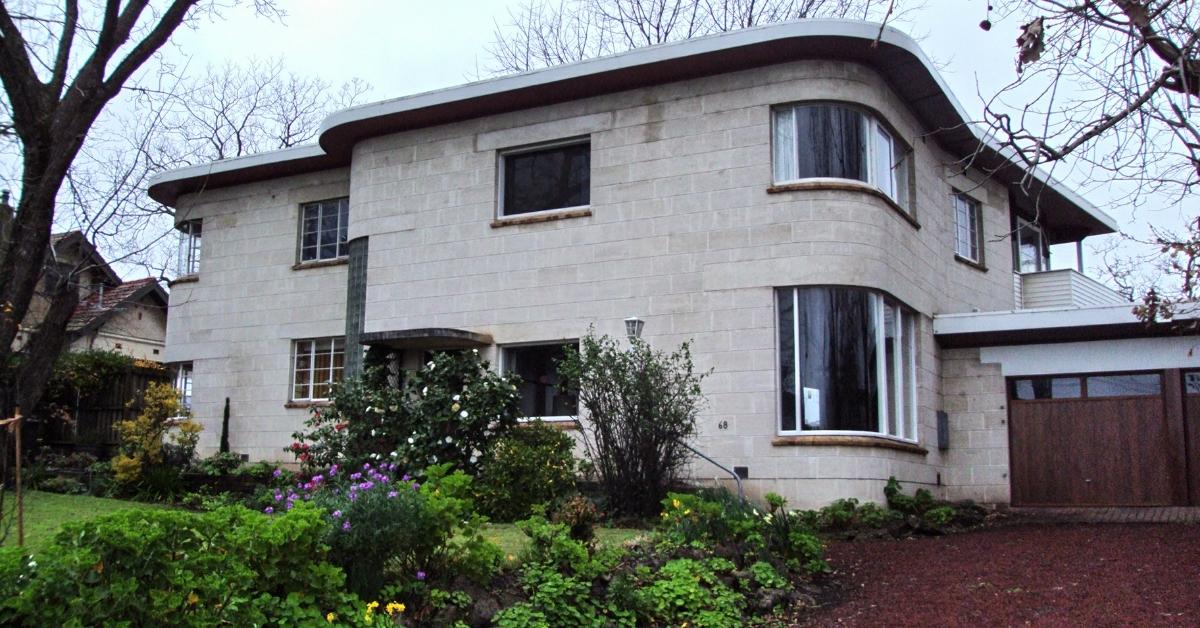Many investors wonder how to buy a multifamily property with no money down. When acquired under the right circumstances, these properties offer owners greater income revenue opportunities while reducing maintenance expenses.
However, owning these properties with little or no money down takes some insider knowledge. This guide covers everything you need to know to become a multifamily property owner with very little upfront investment.
Keep reading to learn how to add one of these exciting rental income streams to your portfolio, protect your investment, and gain other valuable information for becoming a successful multifamily property manager.
When most people hear the term multifamily property, they think of apartments. However, any home that is divided so it can separately house more than one family is considered a multifamily home. These may include:
In some cities, large older or historic homes have been converted into several units. These houses are also considered multifamily dwellings. Some of these properties may also contain mixed commercial and residential units under the same roof.

Due to the fact that there are so many types of single-family homes, investing in these properties can be very similar to single-family property investments, or it can be a lot more work. For example, a 50-unit apartment complex will be much different from managing than a home that houses one family.
For that reason, it is often a good idea to get into multifamily property investment with a smaller multifamily property first. After you master the maintenance, marketing, and management side of things, you may want to try your hand at buying larger multifamily dwellings that contain more units.
When it comes to buying any property with little money down, you may need to utilize one or more non-traditional means of funding the transaction. Check out the options below to see if any of them may work for you.
Private money lenders do not follow the same underwriting rules and government regulations as traditional lenders. For that reason, depending on your income and assets, these lenders may consider loaning you the money to purchase a property with little money down.
However, private money lenders will require you to have some collateral to guarantee the loan. Doing your due diligence is extremely important when you are securing a loan with a property you already have positive equity in because you want to make sure you are not gambling with your assets.
Equity shares are a good idea if you are open to sharing the profits with other investors. After all, there are always people looking for a good revenue stream.
Each person in an equity share deal puts up a percentage of the purchase price to acquire a home. Then, as the property begins to generate income, each shareholder receives their initial investment plus a percentage of the profit at a rate agreed to by the equity shareholders.
Real estate crowdfunding is a way to tape into a large pool of investors to finance a property purchase. Real estate crowdfunding is not the same as crowdsourcing which raises funds from a group of people that are in essence a donation.
Equity crowdfunding is a form of real estate syndication. Basically, you find the investment opportunity and present it on a real estate crowdfunding site. The other members then have the ability to join in on the investment. These groups then have voting rights that can affect the outcome of the property and future financial decisions.

However, this is an option to consider if you want to purchase a large multifamily property and you need the backing of other investors to get the deal done.
Seller financing is a great way to acquire properties without having to go through a bank for financing. However, most owners are going to want at least 20 percent as a downpayment.
Nevertheless, it doesn’t hurt to speak to a property owner in an attempt to work out a deal that benefits you both.
Repair allowances are not a form of financing, but in some situations, you may be able to use a repair allowance to reduce the amount that you need to bring to closing. In order to use this method, you need to make sure you have a good tax accountant and real estate attorney review the deal.
However, the way a repair allowance can work is that the seller agrees to give you a portion of money for repairs the property needs. When this allowance is given, the title company includes it on the settlement statement as a credit which reduces the amount that you owe.
So, if you want to buy a $500,000 multifamily dwelling that needs $100,000 in repairs, it could be included as a closing credit. That closing credit would reduce the money you needed to bring to the closing transaction.
House hacking is when someone purchases or owns a multifamily home and lives in one unit while renting out the others so they can reduce their housing expenses. If you own a larger single-family home, you may be able to divide it to create a rental unit.
If you have the ability to create a rental unit in your home, you can probably get a home equity or construction loan to complete the project with very little out-of-pocket money. This is an especially good time to do this because property values are high now, and even if you have only owned your house for a brief period, you likely have positive equity you can tap into.
Some options are converting a basement or garage into a rentable space or adding a tiny home or guest house to your property.
Several financing options allow buyers to put less money down when buying a multifamily property. However, you may have to use two or more products to fund your project to bring no money to closing.

Conventional loans are a popular choice for investors buying multifamily units. Conventional mortgages require a bit more upfront as the maximum loan-to-value (LTV) allowed is 80 percent. There are occupancy and other requirements that you must meet to qualify.
The government offers multifamily FHA loans to qualified buyers that reduce the upfront costs by offering longer loan terms and lower downpayment requirements. These loans are an excellent resource for people who want to invest in their first multifamily property.
A lender portfolio loan is one that the lender retains after the property closes instead of selling on the secondary mortgage market. Some homebuyers are unaware, but most lenders adhere to strict underwriting and investor guidelines because after they close a mortgage, they sell it.
If the loan does not meet the sales standards on the secondary market, sometimes a lender will still choose to commit the financing, and in those cases, the lender holds it in their portfolio.
Short-term financing is a solution if you do not mind paying higher financing costs in the beginning and refinancing within the first year. These loans usually include a slightly higher interest rate than current mortgage rates, and the closing fees are often higher.
These loans allow you to quickly lock in a property while finding other funding options. However, they often have a balloon payment that could be very costly if you cannot refinance.
If you want to get into multifamily property management, duplexes are a great place to start. They are very similar to single-family homes and you can live in one of the units if you need to while you repair the property.

Duplex prices are often in the range of single-family homes. However, the prices really depend on the amenities each unit offers, the property location, and demand.
Purchasing a multi-family dwelling might seem like a big undertaking for a new real estate investor. However, the potential for positive returns is also high if you make a sound investment and manage it properly.
Having several units means that even if one tenant moves out, your property should still generate income if your occupancy rates are high enough.
Whether you are learning to buy and manage a property as a part-time way to generate some extra income or want to make property ownership a full-time job, owning a multifamily home can help diversify your income.
Adding income streams will give you the security to invest in other projects or pursue other interests.
When caring for several units under the same roof can be less expensive. For example, instead of needing to reroof four houses, when owning a fourplex, you only have to replace one.
Based on your performance as a landlord, you may be able to utilize performance-based financing for future real estate endeavors. That can be a huge help in financing with no money down.
Like any investment, multifamily homeownership does come with downfalls. A dedicated investor can overcome most of them, but they are essential things to note.
Management of any rental property will likely involve some challenging tenant relations and management situations. Not all maintenance issues will be easy, and sometimes having more than one unit under the same roof means more than one unit is affected by an accident, broken pipe, or natural disaster.
Multifamily rental units often have a turnover rate. The tenants usually plan to move into a property they buy at some point, or their family grows, and they need more space. Each time a tenant moves out, you must make the property ready for the next tenant, which adds to ownership costs.
Tenants are not always respectful of their rental homes. It is a temporary housing solution and they do not own the property. Even tenants with good intentions often damage properties they live in for some time, whether that means breaking an appliance, causing physical damage, breaking blinds, or staining the carpet.
As a property owner, you have to take responsibility for the safety of your tenants. While property owners cannot prevent all crime, if a landlord hires a maintenance person with a criminal background who breaks into a tenant unit or a landlord allows criminal activity to occur on the property, they can be legally accountable in some areas.
The less money you put down on a property, the longer you will have to finance the home. That means it will take longer for you to receive the full income potential the property can produce. It also means you will pay more in interest and other mortgage-related fees.
From an investment perspective paying off a property in less time is beneficial in most circumstances. So, no or low downpayment loans may cut your overall profits for longer.
Knowing how to finance a multifamily investment within your means is not your only consideration. You need to make sure the entire deal makes sense.
If you are ready to expand your portfolio, you should seriously consider multifamilies. These properties offer a lot of diversity, and you can get into multifamily rentals with three to four-family homes first and later expand to more significant properties.
Income diversity is beneficial in any business. Real estate investing can make a big difference in terms of carrying you through market fluctuations. Multifamily units allow investors to purchase one property with more than one unit.
When one tenant moves out, other units continue to generate monthly rental payments while you prepare the vacated property for a new occupant. So, if you are only interested in building a small portfolio of rental homes, one or two multifamilies with between two and four units is a wise option to supplement your income or as an investment in your future.
In the right area, multifamily houses are excellent for income generation. One thing to keep in mind when you purchase any investment is the longer you finance, the longer it may take to see a positive return on your investment.
Timing is everything when it comes to real estate, but not just in terms of the market. Managing properties is often time-consuming. When you have tenant issues, you can’t just ignore them, even if you have other personal or professional obligations. So, you need to be sure you are ready to take on the responsibility of managing a multifamily home.
Otherwise, you should look into working with a management company and factor that into your homeownership cost. Neglecting a rental is never a good idea. Tenants won’t pay rent if you do not adequately maintain your units. Furthermore, you will attract the type of occupants who care very little about your property if you do not care for yourself.
If you are interested in helping to offset your housing expenses, renting out a multifamily property in living in one of the units can help. However, it is important not to start investing in property ownership if you cannot afford to maintain it.
If you are interested in working with government programs to offer affordable rental units to low-income or disabled tenants, buying a multifamily property might be a good idea. That does not mean that all multifamily landlords choose to work with government housing programs. Still, the option to accept rental vouchers and other housing subsidies can open the door for other income sources.
If you are ready to try investing in multifamily real estate, there are some simple steps you need to follow. Knowing what to expect will help you prepare for each step and make the experience smoother.
The first step in any investment is to find out if you qualify. There are numerous financing options available so there is likely one that will work for you, but you also need to make sure it is financially beneficial both now and in the future.
Securing financing ahead of time will also tell you what you qualify to buy with your credit, assets, and debt-to-income ratio. If you do not qualify, a loan officer should tell you what you need to obtain a loan for your multifamily property investment.
Next, you need to find a property to buy. There are many ways to find these properties, but working with a realtor at this point is a good idea. They can sort through property listings and send you investment opportunities that fit your criteria. They will also be able to guide you through the next steps.
You must submit an offer when you find a property you want to purchase. Negotiations for multifamily property listings often require more negotiating, especially if you request a repair allowance or other seller concessions.
You need to make sure you are buying a worthwhile investment. So, it is critical that you research the property to find out if major repairs need to be done, if the landlord has had any significant problems with past or current tenants, any major damage the property has sustained in storms or fires, and any other details that would make the property less valuable or harder to market.
While it is possible for investors to take over a multifamily property and turn the property around, reputations are often challenging to overcome. If a neighborhood has a reputation for criminal activity or housing dangerous people, renting the units might be challenging even if you upgrade the property.
If a significant crime has occurred at the location, getting quality tenants to lease there can also be tough. So, these are all things you need to consider.
It is also essential to have the property appraised and inspected. In the inspection report, you will receive critical information about the condition of major structural, electrical, and plumbing systems that are costly to repair and may be hard to diagnose without the proper knowledge and tools.
You should also check the survey for any boundary line discrepancies that could affect the deal's value. Having a realtor represent you and a title company to close the transaction, a requirement for most lenders and government programs will also help protect you.
After you close on your multifamily complex, you need to take care of any maintenance issues and make any upgrades necessary to get the units rented. You should also make existing tenants aware of the change in ownership, introduce yourself, and let them know how they can contact you for maintenance issues and where they can submit rent payments.
After you take over the property, it will be your job to manage and maintain it. Some investors choose to do this themselves. However, other investors who work in real estate part-time or have large property investment portfolios often hire a property management company to handle maintenance requests, letters of notice, and evict tenants.
If you choose to manage your property, you must familiarize yourself with federal and local fair housing and tenant-landlord laws. Following these laws will ensure you are not subject to costly fines or lawsuits.
Investing in property is exciting. There are many ways that you can go about doing it. So, there are options that can work for anyone.
When people invest in multifamily homes, they often have other questions. Check out the answers to these frequently asked questions. They may help to answer questions you have or may wonder about in the future as you move towards buying an investment property.
It is not necessarily harder to get a loan to buy a multifamily property. Many of the requirements are similar to buying a single-family home. However, depending on the loan's size and the home's value, you may need a higher income or more assets to secure financing.
There are many ways to buy a property with little or no cash. There are even options for financing ‘cash only’ auction houses. The key is to find a funding method that works for you. Once you work with a few financing options, you will gain valuable contacts, making the task of getting financed with little or no upfront cash a bit less daunting.
Like buying any other property, there are many options for acquiring Airbnb properties with low initial investments. However, you need to decorate and furnish Airbnb homes which adds expense that is challenging to finance.
Other than the expense of furnishing your Airbnb rental, it is just like buying any other investment property.
If you buy multifamily properties for the right price, they can be an excellent return on investment (ROI). However, you need to be sure you are ready for the responsibility of being a landlord.
Poor management can turn even the most promising home into a significant burden. However, investing in multifamily homes can be a promising opportunity under the proper management. Real estate gives owners a tangible asset they can sell in an emergency to raise funds or hold to generate income.
Over ten or twenty years, a real estate investment can gain many times its original value. Furthermore, generating rental income for multiple units with one loan can often create positive cash flow for landlords in less time.
Investing in a multifamily property is not out of the reach of most people, especially with funding options that require very little upfront money. However, you need to prepare yourself before becoming a property owner.
If you are using equity as collateral, you need to ensure that you protect your existing assets. So, doing extensive research on the property and consulting with a real estate attorney and capable real estate accountant is highly recommended before you buy is highly recommended.
Nevertheless, suppose you find a loan option that works for you and are confident you can meet the other financial and management responsibilities. In that case, there is no reason you should not buy a multifamily property with no money down.
We encourage you to share this article on Twitter and Facebook. Just click those two links - you'll see why.
It's important to share the news to spread the truth. Most people won't.